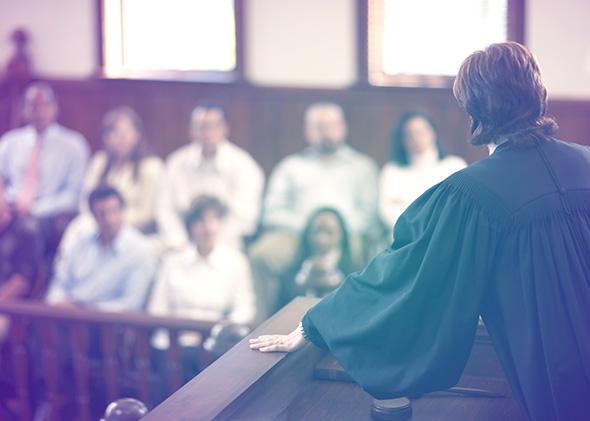One of the most reliably shocking facts about the American justice system is that 97 percent of criminal convictions are the result of plea bargain negotiations—and that jury trials, which many people think of as our society’s primary vehicle for determining a defendant’s guilt or innocence, have become vanishingly rare.
Why are plea deals so common? Because a guilty verdict at trial tends to result in a much longer prison sentence than what a defendant can get if he or she agrees to a plea agreement. For many people, this means admitting guilt on some but not all of the charges brought against them and waiving their right to a jury trial in exchange for a shorter sentence. In many cases, this is an irresistible option, especially because, as the late Harvard Law School professor William Stuntz explained in his landmark book, The Collapse of American Criminal Justice, the sheer number of laws on the books makes it possible for prosecutors to charge people with so many crimes that the risk of going to trial and being convicted of all of them—as opposed to copping to just one or two—carries an unfathomable penalty.
There’s no question that the plea bargaining process allows our criminal justice system to function more efficiently than it would otherwise. But critics see it as a coercive end run around the rights of the accused—especially the poor, who can’t afford lawyers and must rely on overworked public defenders to represent them—as well as a tool for overzealous prosecutors who prioritize winning over seeing justice done. One of these critics is Laura Appleman, a professor at the Willamette University College of Law, and in her new book, Defending the Jury: Crime, Community, and the Constitution, she proposes an intriguing and original solution to the plea bargaining problem: Instead of letting prosecutors and defense attorneys hammer out plea deals behind closed doors and then get them rubber-stamped by judges, we should introduce regular people into the process—by convening a “plea jury.”
Members of the plea jury would consider the terms of each plea deal brought before the court and then decide whether it’s fair. They would be selected from the jury rolls just like regular jurors and would serve for periods of at least two weeks at a time, returning to the same courtroom day after day.
As Appleman imagines it, members of the plea jury would hear the underlying facts of each case, along with the charges that were brought against the defendant by the district attorney’s office, before deciding whether the punishment being proposed as part of the plea deal fits the crime and whether the defendant is agreeing to it knowingly and voluntarily. In this way, Appleman told me, the plea jury would give the public a voice in a process that usually takes place out of sight and would allow the community to provide a check on prosecutors who might otherwise bring egregiously inflated charges as a way of pressuring defendants to plead guilty.
“The problem with the plea bargaining process is that all the power is with the prosecutors,” said Appleman. “We’ve gone from an adversarial system to what I’d call an inquisitorial system, meaning there’s one person—i.e., the prosecutor—putting defendants through their paces.” And while in principle, Appleman said, it’s the job of defense attorneys to make sure their clients aren’t taken advantage of, the fact is that most people accused of crimes can’t afford lawyers and have to rely on public defenders who are no less motivated than the prosecutor or the presiding judge—who also has a burdensome docket to get through—to resolve each case as fast as they can. The introduction of a jury with the power to reject plea deals—or at least recommend that the judge do so—would subject the plea bargaining process to the scrutiny of people who have no interest in maximizing efficiency at the expense of justice.
Plea juries might also give prosecutors an incentive to be more restrained in their charging decisions, according to Appleman, by harnessing their desire to get through cases quickly. “Practically, if you’re a line prosecutor, and you’re constantly getting sent back by the plea jury, that’s going to make you less efficient,” she said. “If you’re always the person whose deals get rejected, your superiors are going to notice. So just knowing that there’s this all-seeing eye that’s going to reject your overcharging would maybe motivate you as a prosecutor to be more fair.”
Of course, Appleman’s idea would represent a radical change to our criminal justice system, and it’s hard to imagine it being implemented, given that it would inevitably slow down the churn of defendants passing through the courts. It also might be naive to think that members of the public can be counted on to grapple with the difficult trade-offs inherent in plea negotiations and to imagine that they wouldn’t just automatically approve the deals they’re presented with.
Still, even if Appleman’s proposal is little more than a thought experiment, it shines a light on a serious problem in our justice system—something that should be regarded as a scandal, not an inevitable state of affairs.
